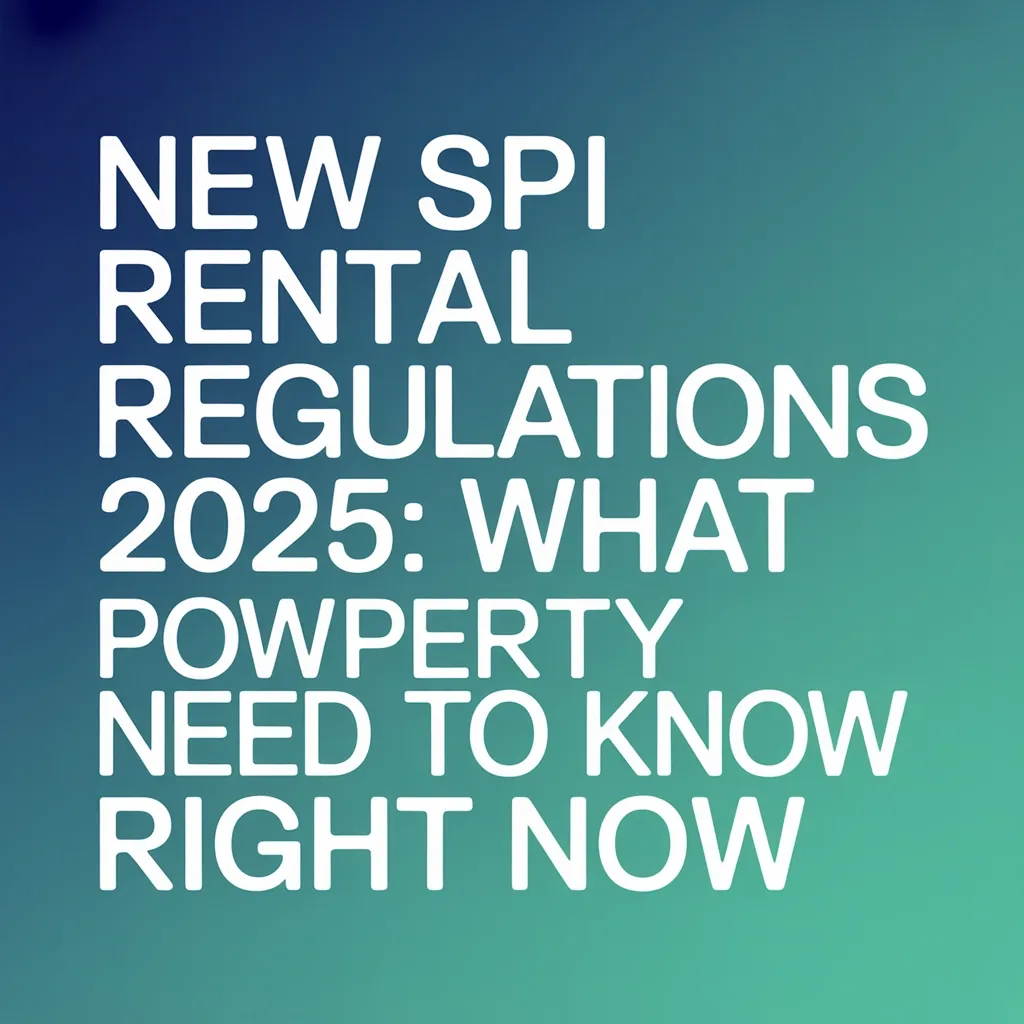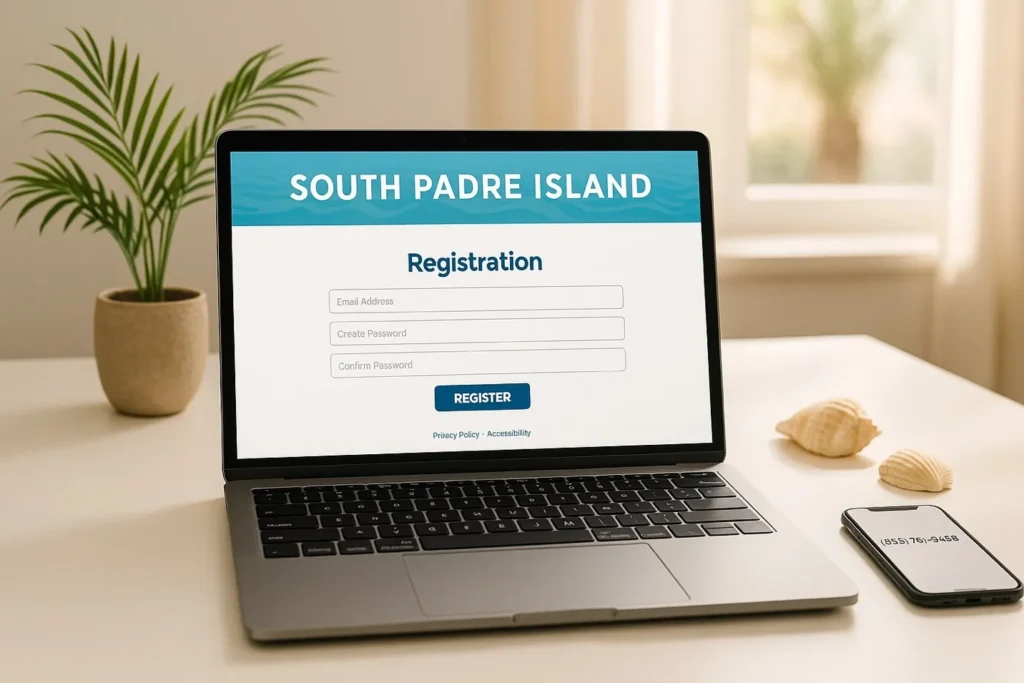
If you’re operating a short-term rental on South Padre Island, 2025 has brought some important changes that directly affect how you run your property. These new regulations are already in effect, and understanding them is crucial for keeping your rental business compliant and thriving.
The good news? These updates aren’t designed to make your life harder: they’re about creating a better environment for everyone while protecting your investment. Let’s walk through exactly what you need to know and do to stay on the right side of these new rules.
Registration Is Now Mandatory
Every property that’s advertised or rented for stays under 30 days must be registered with the City of South Padre Island. This isn’t just a suggestion: it’s a requirement that applies to you whether you’re the property owner, manager, or host.
The registration process is straightforward. You can handle it entirely online at www.myspi.org, or if you prefer speaking with someone directly, call the city at (956) 761-8109. The staff there are helpful and can walk you through the process, plus they’ll help you determine which zoning district your property falls into: something you’ll need to know for the noise regulations we’ll cover next.
Getting registered early shows you’re a responsible property owner who’s committed to operating within the community guidelines. It also protects you from potential fines down the road.

Hotel Occupancy Tax Collection
Here’s where things get a bit more involved, but it’s manageable once you understand the system. You’re now required to collect Hotel Occupancy Tax from your guests and remit it to three different entities:
- City of South Padre Island
- Cameron County
- State of Texas
Each has its own rate and payment schedule, so you’ll need to set up accounts with all three. The city website provides detailed guidance on how to calculate and submit these taxes properly.
Think of this as part of your regular business operations: similar to how hotels have always handled occupancy taxes. Many property management software platforms can automate this collection and remittance process, making it less of a headache for busy property owners.
Noise Regulations: Know Your District
The updated conduct standards include stricter noise regulations, and they vary depending on where your property is located. This is where knowing your zoning district becomes important.
For Districts A and E, the rules are particularly specific:
- Weekdays: No loud music or amplified noise outside from 10 p.m. to 7 a.m.
- Weekends: No loud music or amplified noise outside from 11 p.m. to 7 a.m.
If your property is in a different district, the noise limits may vary, so check with the city to understand your specific requirements.

These regulations help maintain the balance between letting your guests enjoy their vacation and respecting the local community. Consider including this information in your house rules and welcome materials so guests know what to expect.
Cleanliness and Conduct Standards
The new regulations emphasize maintaining properties to high standards, with a specific focus on keeping both public and private areas free of trash. This aligns with what most successful property owners are already doing: maintaining clean, welcoming spaces that guests want to return to.
Regular maintenance checks and thorough cleaning between guests aren’t just good business practices anymore: they’re regulatory requirements. Consider this an opportunity to ensure your property stands out in a competitive market.
Parking Changes You Need to Know
One significant change affects parking arrangements: overnight parking in city-owned lots is now prohibited. This means you’ll need to ensure your guests have alternative parking solutions.
Review your property’s parking situation and make sure you’re clear about where guests can and cannot park overnight. If your property doesn’t have dedicated parking, you might need to explore nearby private options or adjust your guest communications accordingly.

What Enforcement Looks Like
The City of South Padre Island is actively monitoring compliance with these new regulations. They’re not looking to catch people off guard: they want property owners to succeed within the framework of community standards.
However, non-compliance can result in fines. Properties that aren’t registered, don’t collect required taxes, or violate conduct standards face potential penalties. The enforcement approach is designed to encourage compliance rather than punish good-faith operators who are working to meet requirements.
Getting the Help You Need
You don’t have to navigate these changes alone. The city has made resources available to help property owners understand and comply with the new regulations.
Start with the municipal website at www.myspi.org, which contains comprehensive information about registration, tax requirements, and conduct standards. If you need personalized assistance, the city staff at (956) 761-8109 can help with:
- Determining your property’s zoning district
- Understanding specific noise requirements for your location
- Navigating the registration process
- Clarifying tax obligations

Why These Changes Matter
These regulations represent South Padre Island’s commitment to balancing the economic benefits of short-term rentals with community standards and proper oversight. For property owners who are already operating responsibly, these changes formalize what you’re likely already doing.
The registration system helps the city understand the scope of short-term rental operations and ensures all properties are contributing appropriately to local infrastructure through taxes. The conduct standards help maintain South Padre Island’s reputation as a destination that welcomes both visitors and residents.
Moving Forward Successfully
Adapting to new regulations might feel overwhelming at first, but breaking it down into manageable steps makes the process much smoother. Start with registration: get that handled first since it’s required for all other compliance measures.
Next, set up your tax collection and remittance systems. Many property owners find that investing in good property management software pays for itself by automating compliance tasks and reducing administrative burden.
Finally, review your guest communications and house rules to reflect the new standards. Clear expectations help prevent issues and show your guests that you’re running a professional operation.

The key is viewing these regulations as tools that help create a sustainable, professional short-term rental environment on South Padre Island. Property owners who embrace these changes and implement them thoughtfully often find they improve both guest satisfaction and community relationships.
Ready to ensure your South Padre Island rental property is fully compliant? Start with registration today and take advantage of the city’s resources to make the transition smooth and successful. Your proactive approach to compliance will set you apart as a responsible operator in this vibrant rental market.
Interested in booking a great deal on a South Padre Beach Rental? Contact us! Visit www.SouthPadreIslandTrips.com or call 956-242-0904 or email chad@southpadretrips.com – send your dates, # of people, and what you’re looking for and we’ll get you the best deal!
Own property on South Padre Island and having trouble with housekeeping, maintenance, or communication? Contact Chad directly anytime: call/text 512-825-2157 or email chad@southpadretrips.com. South Padre Trips is the #1 rated company on Google Reviews with 500+ five-star reviews! We’re here to help!
